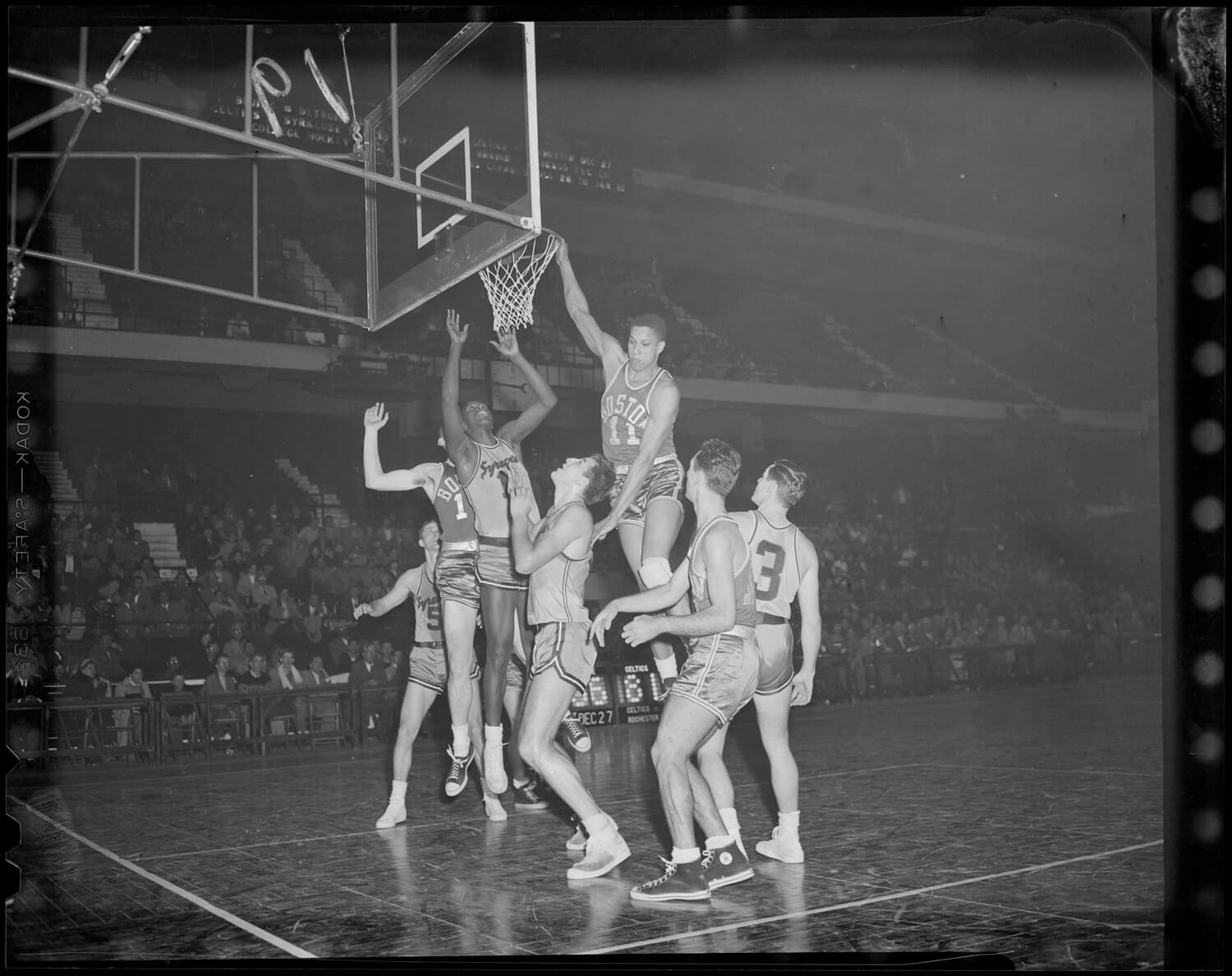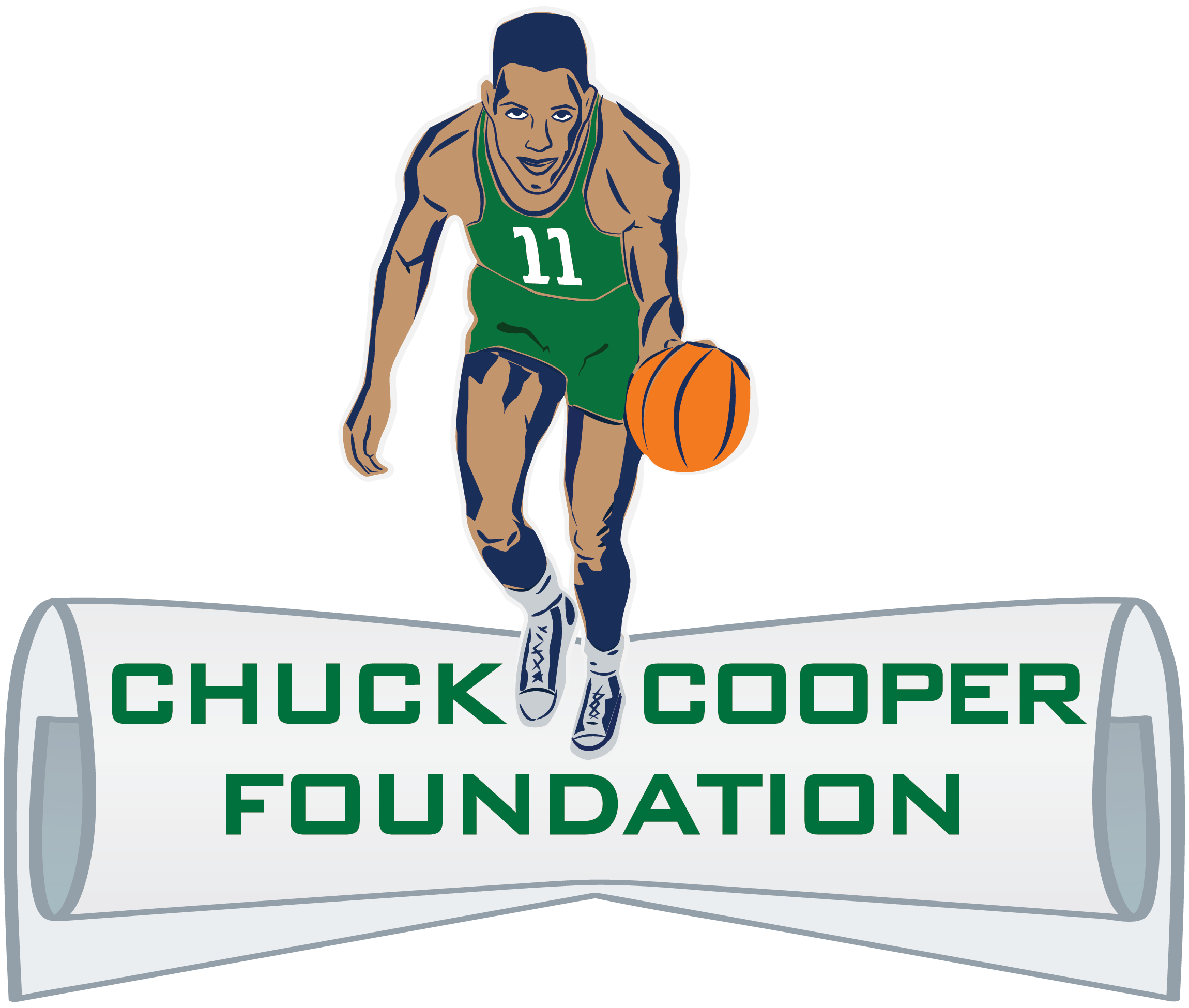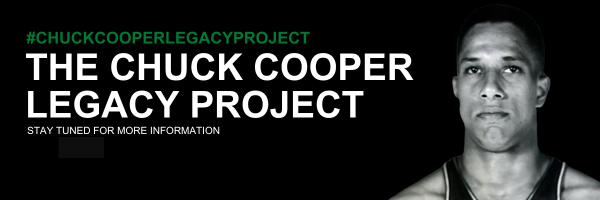Timeline/History
Charles “Chuck” Cooper remains the true embodiment of an Early African-American Pioneer. He broke the color barrier and helped clear a path for African-American players to make an impact on the NBA. Learn about his life of courage, resilience, and perseverance in the timeline below.

1943
As a junior, Charles “Chuck” Cooper plays a pivotal role in winning the city Championship his basketball team at Westinghouse High School.
1944
In his senior year, Cooper leads Westinghouse to a back-to-back victory in the Pittsburgh city championship and is named the first team All-City center.
1944
Chuck Cooper graduates from Westinghouse High School and enrolls at West Virginia State College, a historically black institution. After his first semester, he is drafted into the US Navy, where he proudly serves his country during the final stages of World War II.
1945
Chuck Cooper is honorably discharged from the Navy and, despite interest from top integrated collegiate basketball programs nationwide, chooses to attend Duquesne University in Pittsburgh for its esteemed education and the opportunity to play in front of his family.
1946-47
In an exhilarating freshman year, Chuck Cooper emerges as a standout among the nation’s top new basketball talents, spearheading Duquesne University’s thrilling run to an impressive 21-2 record, including a streak of 19 consecutive wins. Their remarkable season reaches its apex at the prestigious NIT in New York, the era’s top basketball tournament, where they eventually bow out to the future champions, the Utah Utes, in an intense quarterfinal showdown. A standout moment of the regular season occurs when Tennessee refuses to play against Duquesne if Cooper, the only black player on the team, is included. Cooper selflessly offers to sit out, but in a significant show of unity and principle, his teammates and the university refuse to play without him, resulting in a forfeit win against Tennessee. This episode highlights Cooper’s significant impact and the team’s commitment to inclusivity and justice.
1947 - 1949
In these standout seasons, Chuck Cooper leads his Duquesne University team in scoring and rebounding, marking him as one of the nation’s elite collegiate players. Following his exceptional junior season, his remarkable skills catch the attention of professional teams; he is courted by three NBA teams and the world-famous Harlem Globetrotters, a testament to his outstanding play and rising prominence in the basketball world.
1949 - 1950
Chuck Cooper, as the first black team captain at Duquesne University, leads the Dukes to a standout season, reaching the No. 2 spot in the AP poll and concluding with a No. 6 national ranking and a 23-6 record. Advancing to the NIT semifinals after a first-round bye, they put up a valiant fight before being bested by City College of New York, the eventual and later disgraced champions of both the NIT and NCAA tournaments. Cooper’s exceptional play earns him Consensus All-American status, marking him as only the second African American player in NCAA basketball history to achieve this prestigious recognition. His college career, highlighted by scoring over 1,000 points, propels Duquesne University to an impressive 78-19 record and two NIT appearances.
1950
- Cooper officially broke the NBA’s color barrier on April 25, 1950 when the Boston Celtics selected him with the 13th overall pick of the NBA draft. When Celtics owner Walter Brown was asked shortly after the selection if he knew Cooper was Black, Brown exclaimed, “I don’t give a damn if he’s striped or plaid or polka-dot, Boston takes Charles Cooper of Duquesne!” Cooper became an historic American sports figure and the first piece of basketball’s “Holy Trinity” that day as the first Black player drafted into the NBA. Cooper is joined in the Holy Trinity by two current Naismith Memorial Basketball Hall of Famers, Nat “Sweetwater” Clifton (2014), the first African-American player to sign an NBA contract, and Earl Lloyd (2003), the first African-American to play in an NBA game. Many years later, Lloyd remained grateful to Cooper and the precedent that Mr. Brown had established in the draft when he stated, “If the Celtics had not taken Chuck [in] the second round, I cannot see the Washington Capitols stepping up to make me the first Black draftee in the NBA.”
Cooper made his NBA debut in the Celtics season opener on November 1, 1950, scoring seven points. Due only to the fact that Earl Lloyd’s Washington Capitols opened their season one day earlier, Cooper missed the distinction of being the first Black player to play in an NBA game by one day. Lloyd left to serve in the military after appearing in just the first seven games of the season, but Cooper played in 66 of 69 regular season games. He finished his rookie campaign averaging 9.3 points per game, 8.5 rebounds per game, and 2.6 assists per game, all of which were higher than the per game averages of the other two members of the Holy Trinity. Cooper helped the Celtics improve from 6th place to 2nd place in the Eastern Division and advance to the playoffs for the first time since the 1947-48 season.
After 1950
Cooper played four seasons for the Boston Celtics, one season for the Milwaukee Hawks, and split his final season between the St. Louis Hawks and Fort Wayne Pistons. Cooper’s Celtics finished second in the Eastern Division in three of his four seasons with the team and advanced to the playoffs in all four seasons. In his sole season with the Pistons, Cooper helped the team win the Western Division and advance to the NBA Finals. In six NBA seasons, Cooper recorded 2,725 points, 2,431 rebounds, and 734 assists.
During his career, Cooper faced the fans of opposing teams on the road with dignity and class. He often had to stay in a different hotel or had to eat at different restaurants than the rest of the team. He once even had to sleep on the train instead of the team hotel in North Carolina. Playing in Boston meant he often dealt with discrimination in the very city he represented. Cooper himself often felt that his skills were being marginalized in the NBA because the League was not ready for black stars. Instead, he was forced to do the dirty work of playing hard defense and getting rebounds. His former coach, Red Auerbach, summed it up best when he said that Cooper “had to go through hell” as an NBA player. Cooper’s courage and strength in the face of adversity earned him a high degree of respect from his NBA teammates and coaches at every stop.
After 1950
Cooper joined his friends from the Globetrotters, and future Hall of Famers, Reece “Goose” Tatum and Marques Haynes, for one season with the Harlem Magicians before retiring from basketball after an injury from a car accident ended his playing career.
After 1950
Cooper continued his pace-setting off the court upon his retirement. He earned a Master’s Degree in Social Work from the University of Minnesota in 1960. In 1970, he became the City of Pittsburgh’s first Black department head and later served as Pittsburgh National Bank’s first Urban Affairs Officer.
1974
Cooper was elected to the Pennsylvania Sports Hall of Fame in 1974.
1983
Duquesne University honors Cooper by launching the Chuck Cooper Award, which has been awarded to a talented underclassman since its inception.
2001
Duquesne University retired Cooper’s jersey in 2001.
2009
Duquesne University launches the annual Chuck Cooper Classic game
2011
Duquesne University names a building on campus, the ‘Chuck Cooper Building’, after Cooper.
2016
Duquesne University names Cooper as an automatic selection to its All-Century Team.
2016
The Boston Celtics posthumously awarded him with a ‘Heroes Among Us’ award in 2016. In an ESPN.com article about Cooper from 2016, two-time NBA MVP Steph Curry admitted to not knowing much about the NBA’s black pioneers, stating, “The roots of the game, especially the guys that broke barriers … [t]hat is definitely something I would be interested in learning about, because I don’t know much about that story at all.”
Contact
We look forward to hearing from you! Please fill out the form below and a member of our team will be in touch within one business day.

